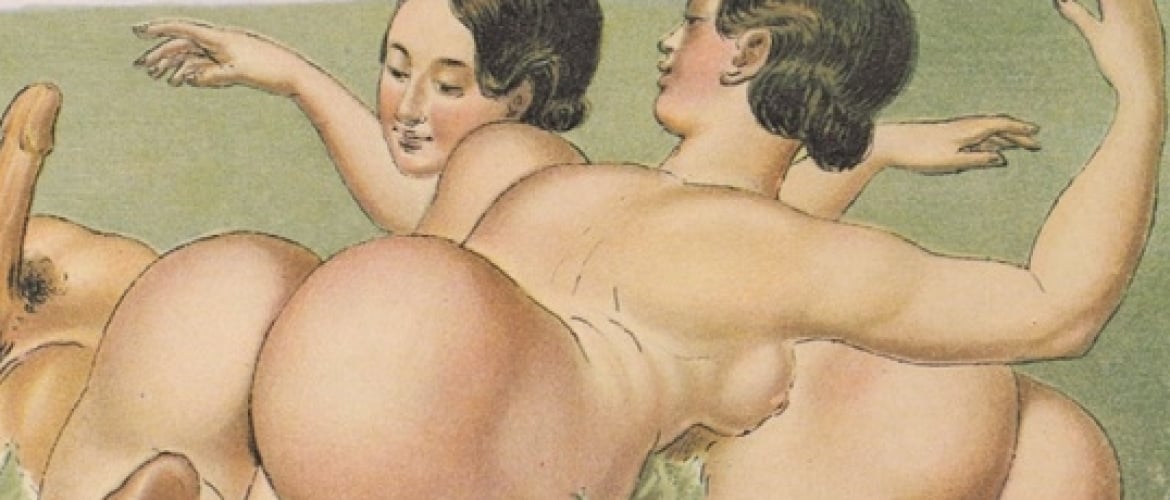
Peter Fendi (1796-1842) was an Austrian court painter and engraver. The fact that he was one of the most prominent artists of the Biedermeier period can be indirectly proved by the tendency to ascribe to him anonymous erotic paintings of that time.
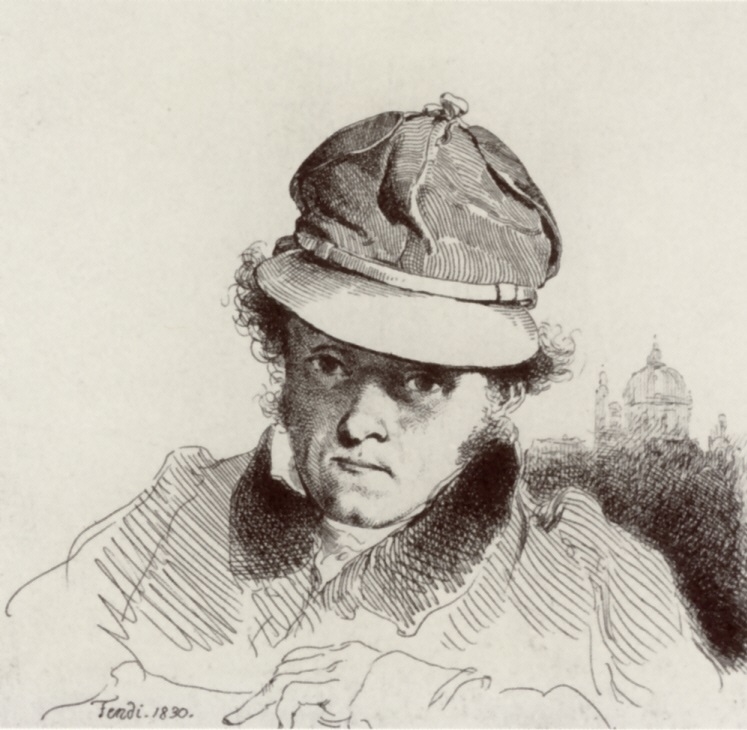
Fig. 1. Peter Fendi, Self-Portrait, 1830 (Wikipedia.org)
Early Years
Fendi was born in a family of a schoolmaster. Accidental falling from a changing table caused irreparable damage to his spine. However, this disease didn’t affect the talents Fendi demonstrated from an early age. His drawing skills allowed him to enroll at the St. Anna’s Academy of Fine Art in 1810. Thirteen-year-old Fendi had been studying there for three years. After the death of his father, Fendi earned a living by doing paperwork in a law firm.
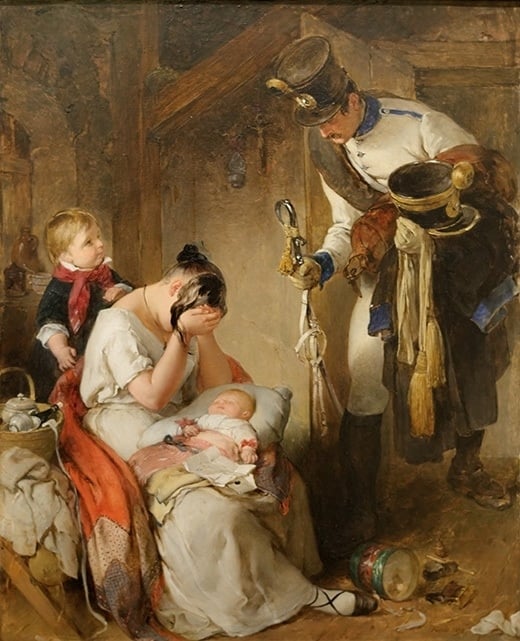
Fig. 2. Sad News (Wikipedia.org)
The Imperial Gallery
The meeting with Joseph Barth a couple of years later had changed Fendi’s life for the better. Barth was a personal ophthalmologist of the emperor Joseph II and also an art collector. His connections with many significant artists helped Fendi find a job at the Imperial Gallery of Coins and Antiquities. He worked there as a draughtsman and engraver and created the designs for some Austrian banknotes of that period. Fendi also traveled for his studies to Salzburg and Venice with the director of the Gallery Anton von Steinbüchel.
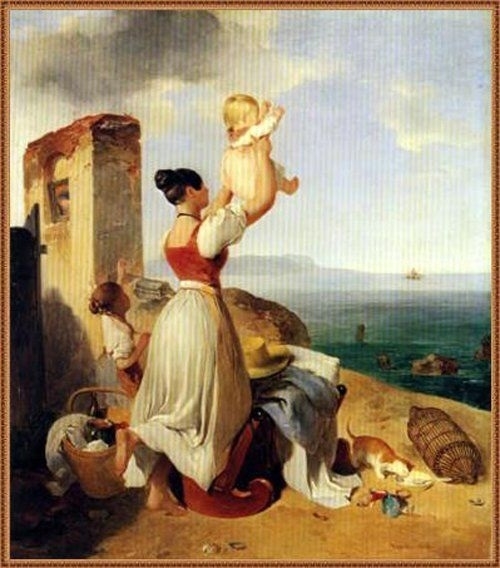
Fig. 3. Daddy’s coming (pinterest.com)
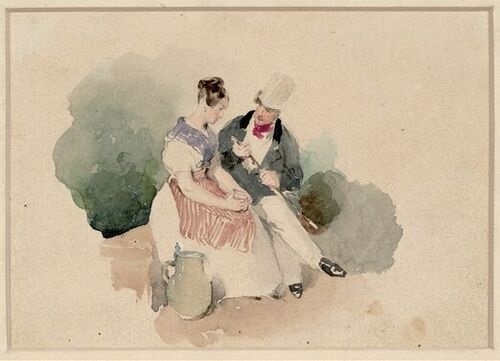
Fig. 4. pinterest.com
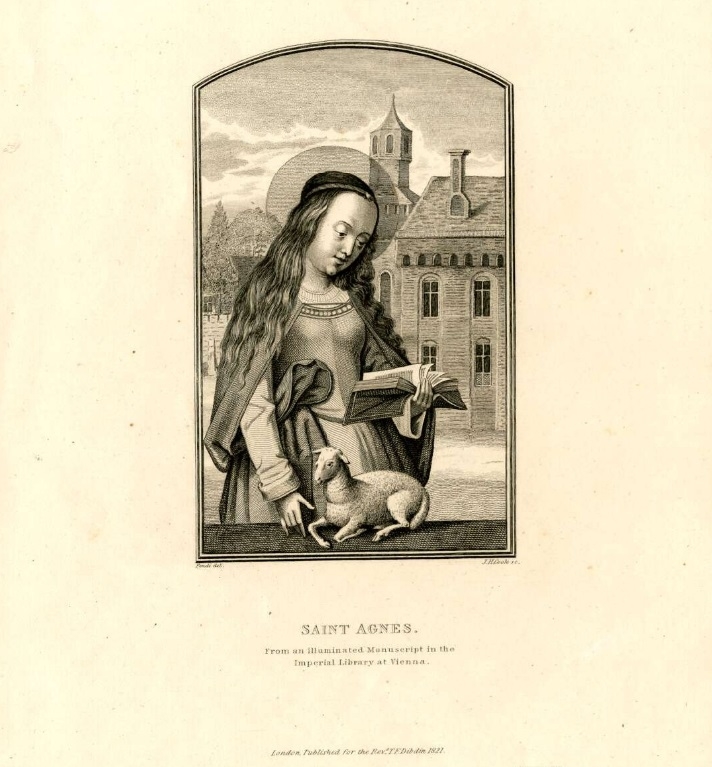
Fig. 5. Saint Agnes, lithograph, 1821 (britishmuseum.org)
The Favorite
In 1833, Fendi was introduced at the court by the new director of the antique cabinet where the artist worked. The Austrian princesses were charmed by his talent, so he became a drawing teacher. In 1836, Fendi was elected a member of the Academy of Fine Arts Vienna. Gaining popularity among the aristocracy, he was the most demanded portraitist and left an immense legacy of engravings and watercolors.
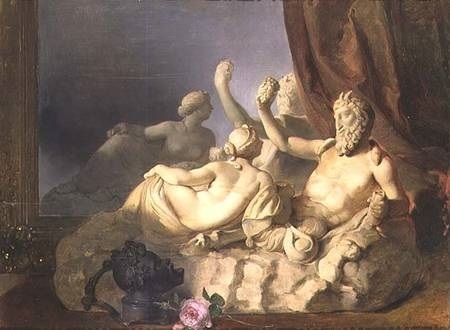
Fig. 6. Pan and Nymph (kunst-fuer-alle.de)
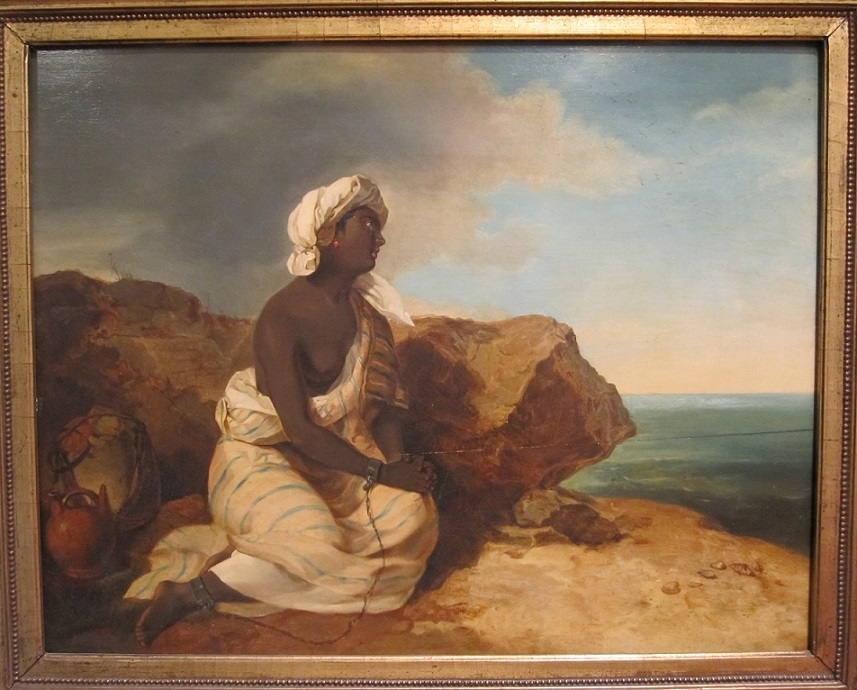
Fig. 7. Hope (deanjosephfineart.com)
Erotic Watercolors
Forty erotic watercolors ascribed to Fendi came down to us in a book of reproductions published in 1910. Originals were lost, and Fendi’s authorship is dubious. However, the example of another court painter Mihaly Zichy allows us to suppose its’ possibility. Some people allege that watercolors were created by Fendi for the Austrian kaiser’s family. The Erotica Universalis edition dates the images back to 1835 when Fendi was at the peak of his career. According to the Dictionary of Erotic Artists, this set of pictures was also partly reproduced by Hungarian painter Julius Zauber in the 1880s, but Zauber’s designs seem to be even more obscure than pseudo-Fendi’s originals.
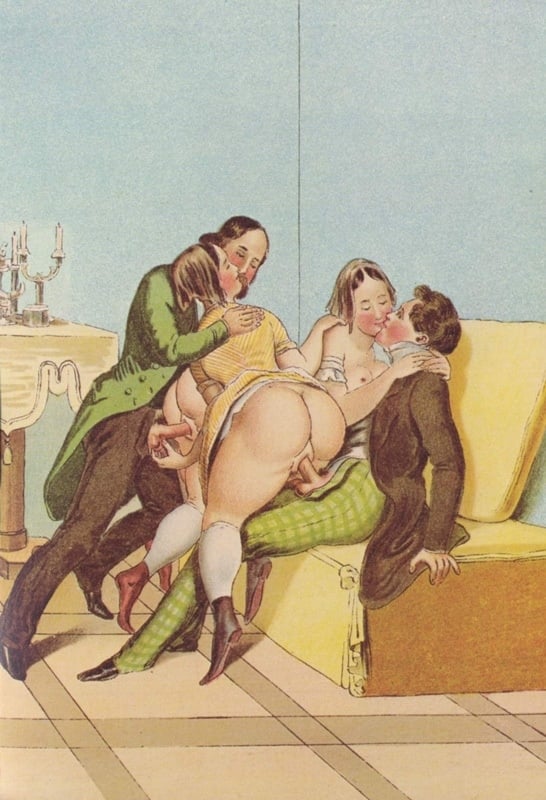
Fig. 8. A Social Evening (wikimedia.org)
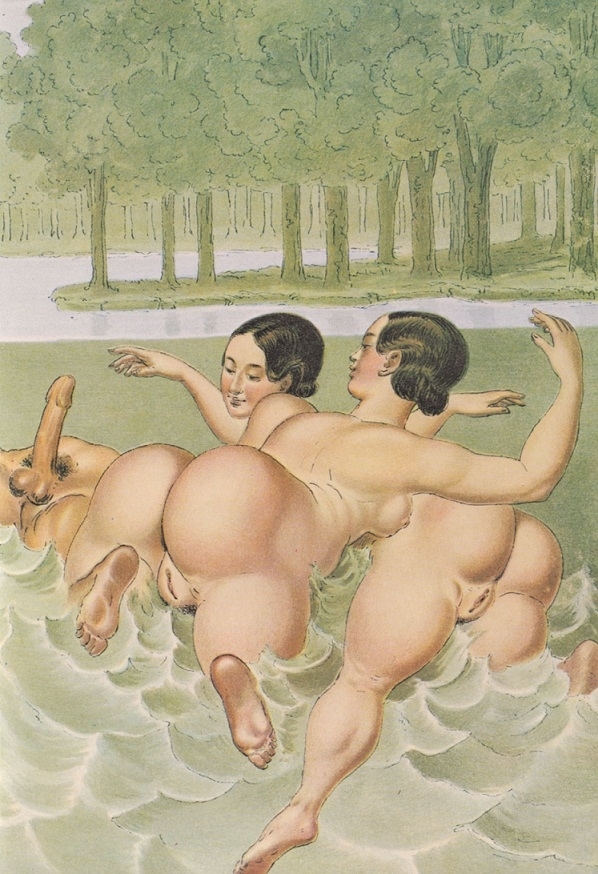
Fig. 9. Swimmers (Wikimedia.org)
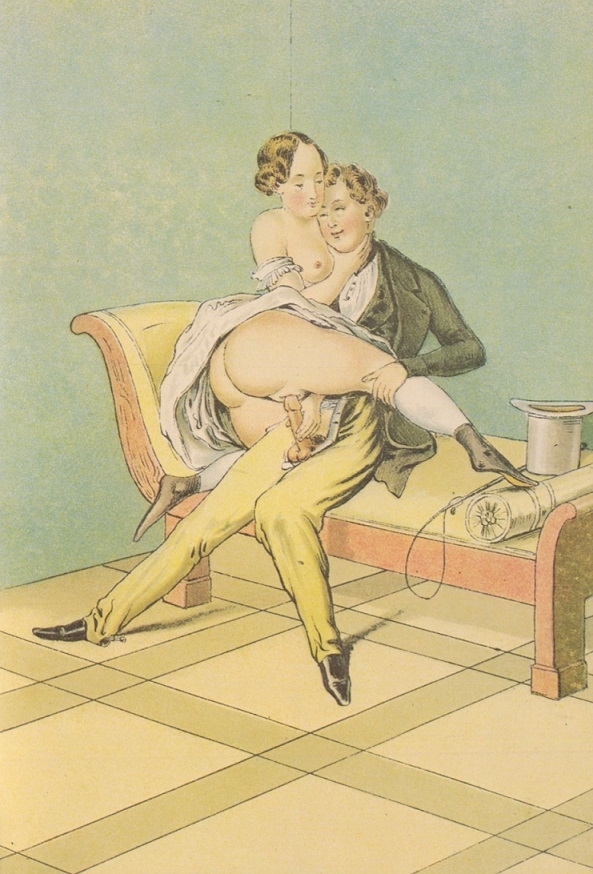
Fig. 10. Lovers (Wikimedia.org)
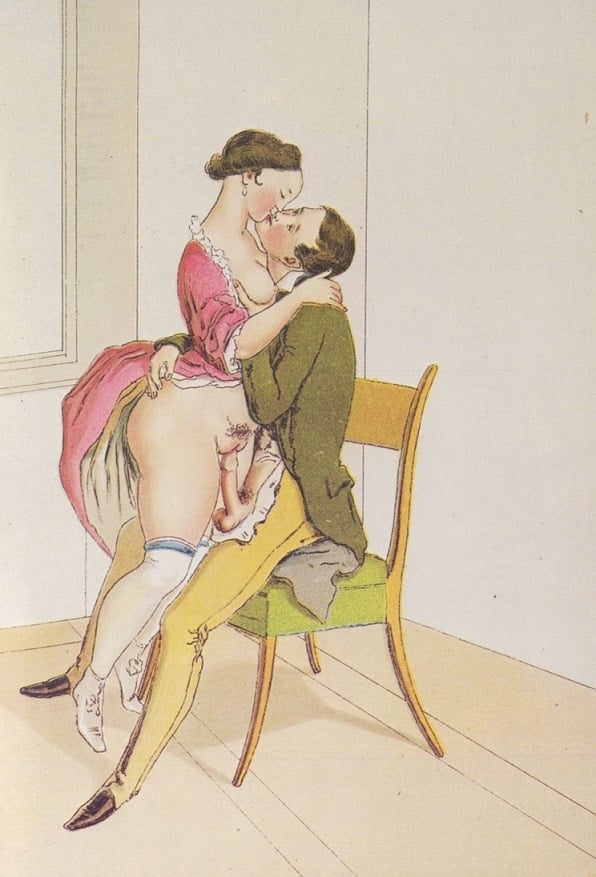
Fig. 11. Lovers (Wikimedia.org)
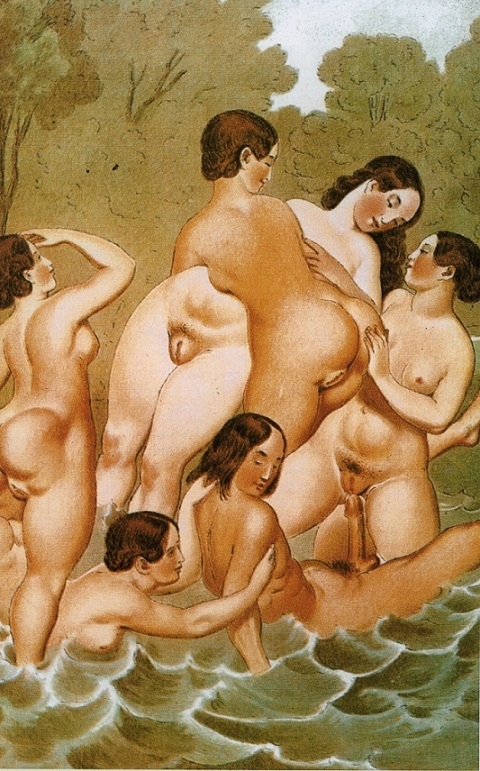
Fig. 12. Erotic scene (Wikimedia.org)
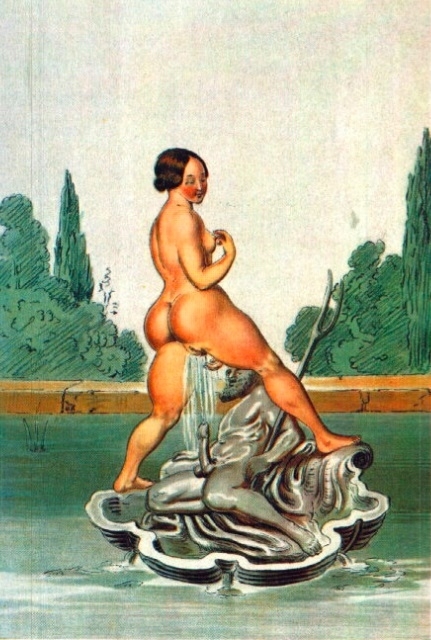
Fig. 13. Fountain scene (Erotica universalis, p. 483)
Biedermeier
Peter Fendi was a master of Biedermeier art, which followed monumental and passionate Romanticism, being a sharp contrast to the latter. Biedermeier depicted the joy of a simple bourgeois life. Fendi’s legacy is full of idyllic scenes with playing children and beautiful maidens. Some of the erotic watercolors are much in Biedermeier style as they depict reclining couples or threesomes. Peaceful open-air encounters or room orgies don’t contain violence. Each character enjoys more or less common sensual activities, not involving ropes or whips or any other forcing devices, which can be seen in de Sade illustrations.
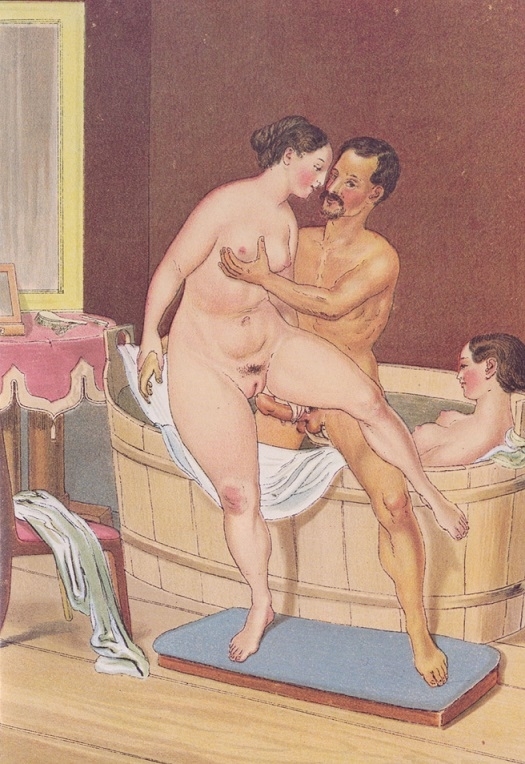
Fig. 14. Bathing Scene (Wikimedia.org)
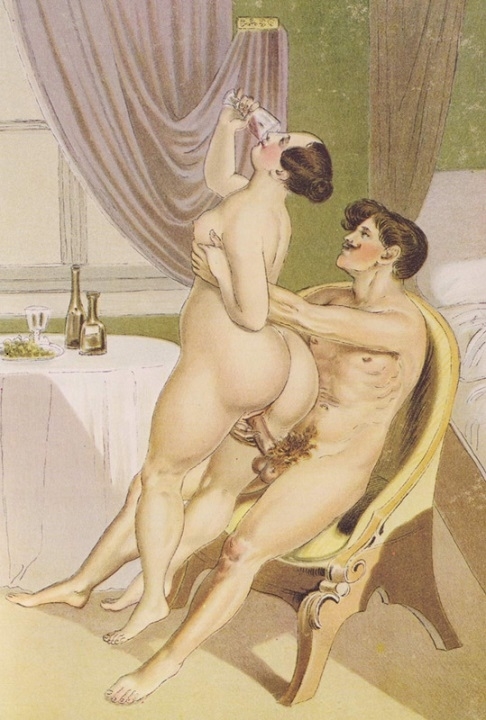
Fig. 15. After the meal (Wikimedia.org)
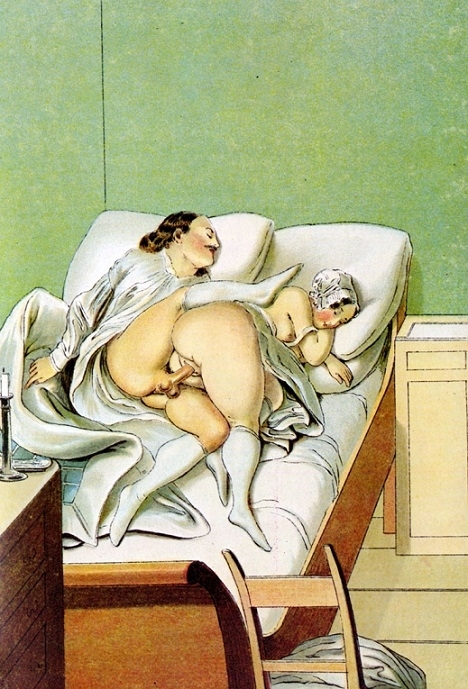
Fig. 16. In the Bed (Wikimedia.org)
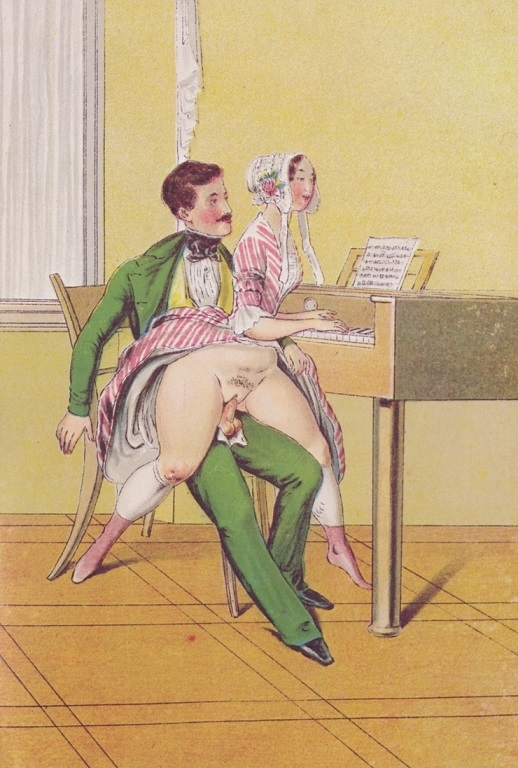
Fig. 17. Music Lesson (Wikimedia.org)
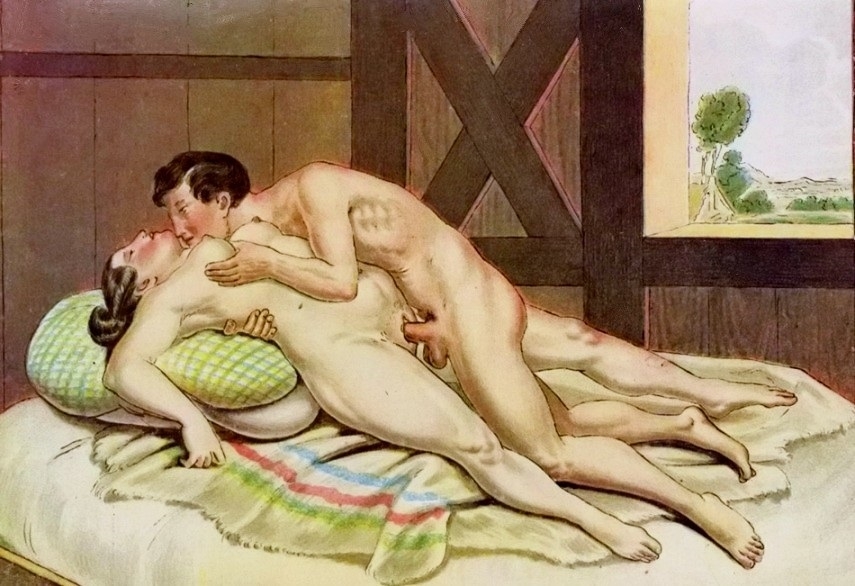
Fig. 18. In the Barn (Wikimedia.org)
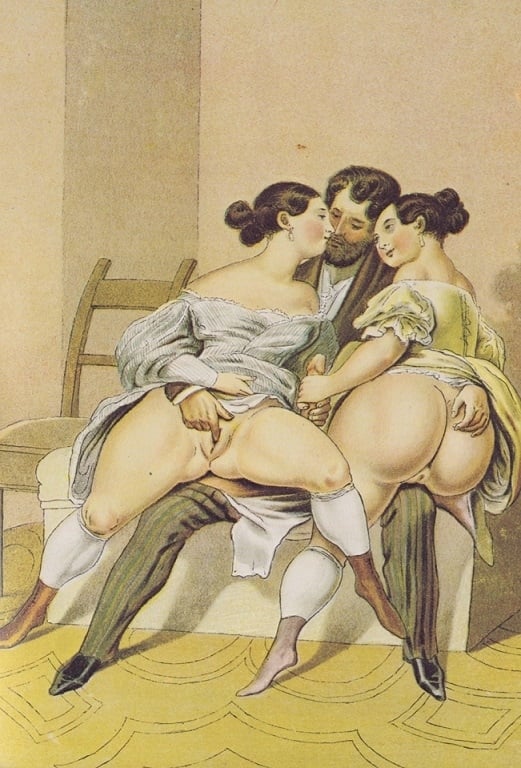
Fig. 19. Mutual Friend (Wikimedia.org)
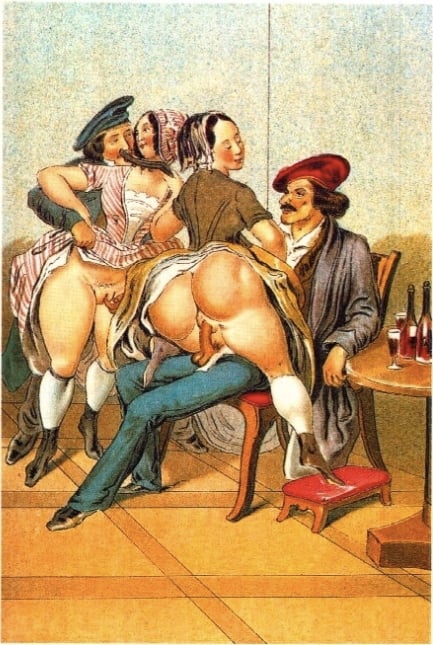
Fig. 20. Erotic scene (erotica universalis, p. 464)
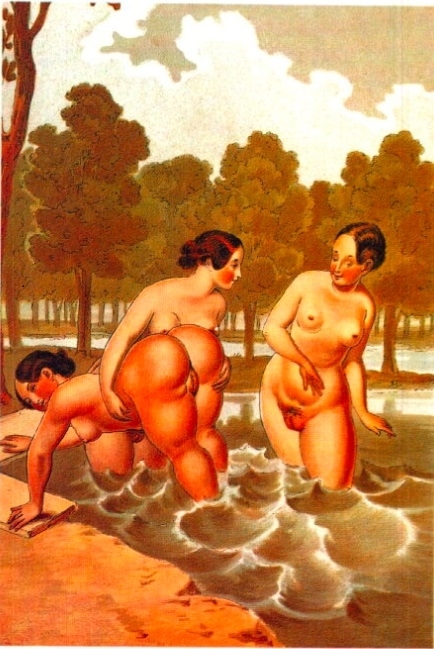
Fig. 21. Bathers (erotica universalis, p. 468)
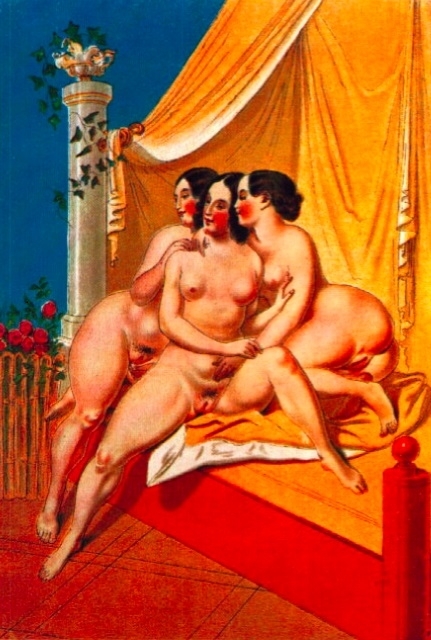
Fig. 22. Erotic scene (erotica universalis, p. 470)
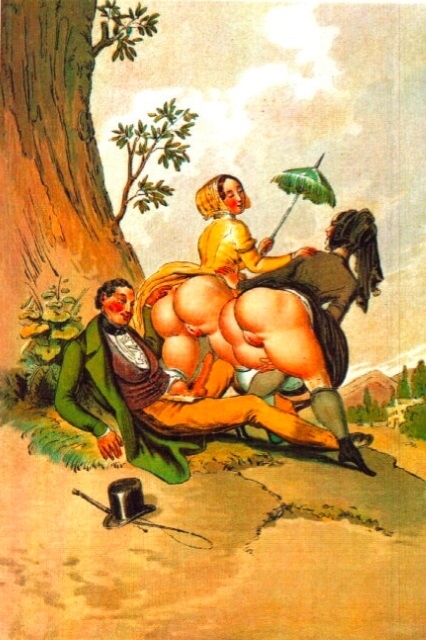
Fig. 23. Erotic scene (erotica universalis, p. 472)
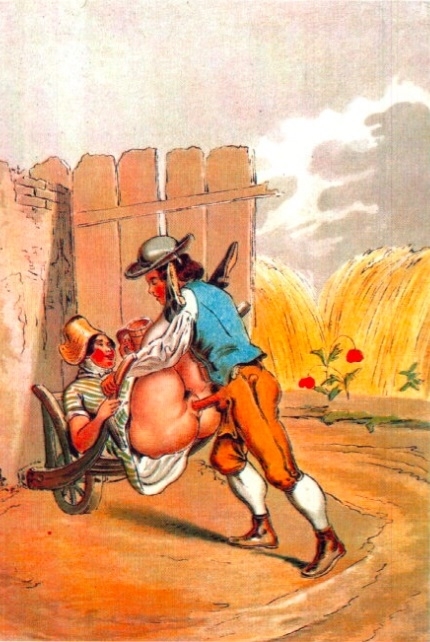
Fig. 24. Erotic scene (erotica universalis, p. 474)
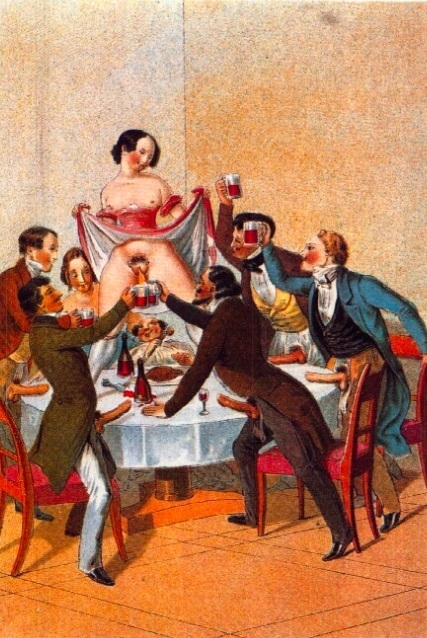
Fig. 25. Erotic scene (erotica universalis, p. 465)
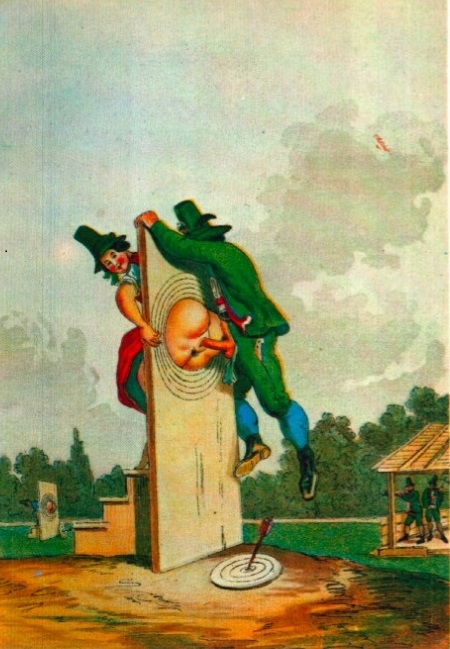
Fig. 26. Erotic scene (erotica universalis, p. 469)
Pin-Up
Another part of the watercolors depicts acrobatic sex. Circus Kama Sutra taking place in a large room with long white curtains reminds us of holiday postcards with merry people in costumes. In its’ turn, this postcard vibe connects Biedermeier pictures with the pin-up style, which came out of postcard and calendar prints.
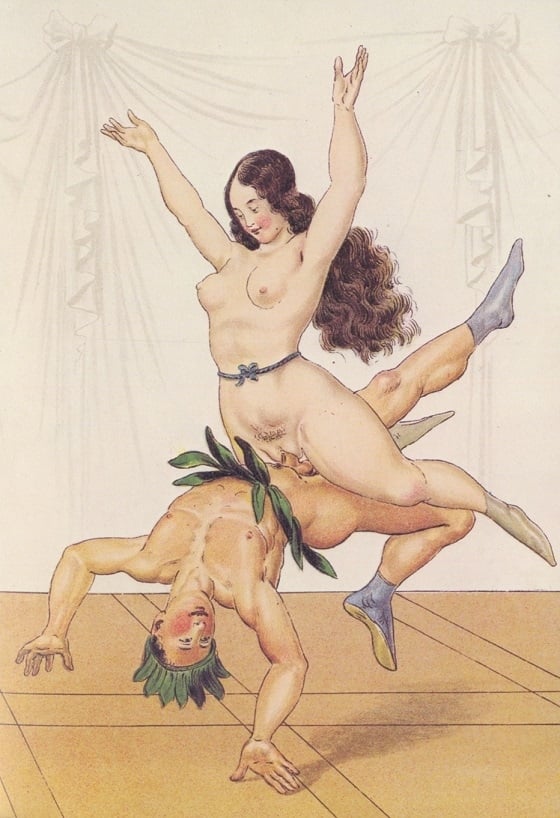
Fig. 27. Acrobatic sex (Wikimedia.org)
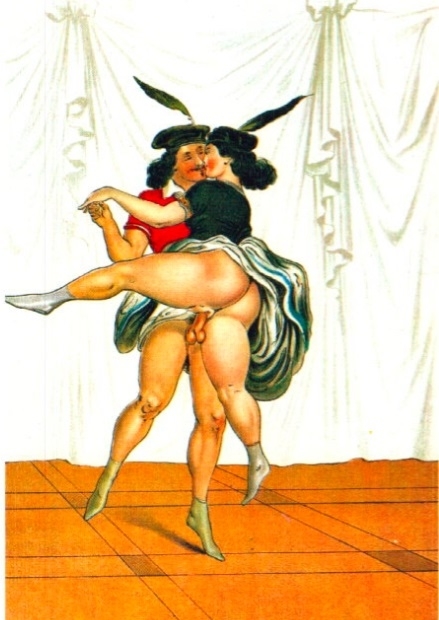
Fig. 28. Dancers (erotica universalis, p. 475)
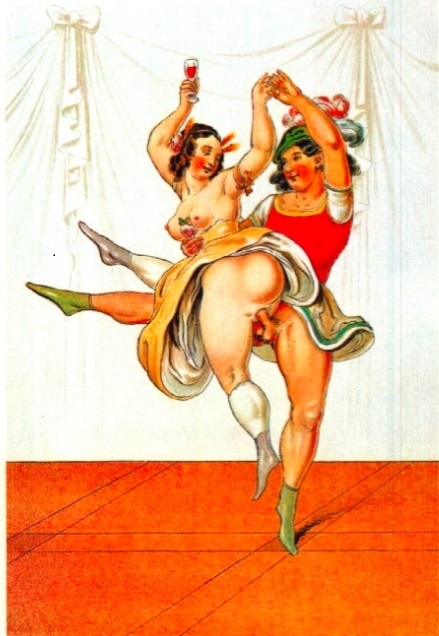
Fig. 29. Dancers (erotica universalis, p. 476)
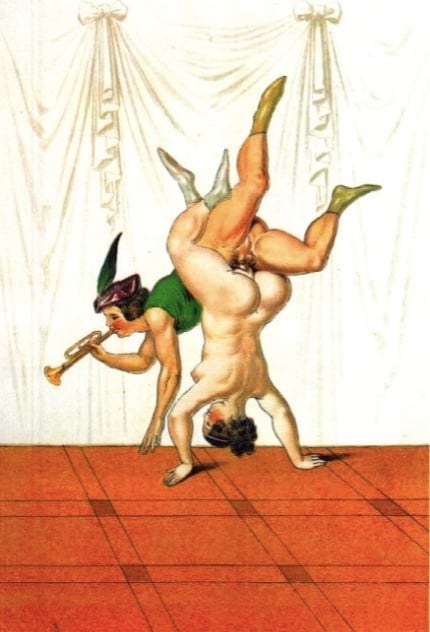
Fig. 30. Acrobats (erotica universalis, p. 477)
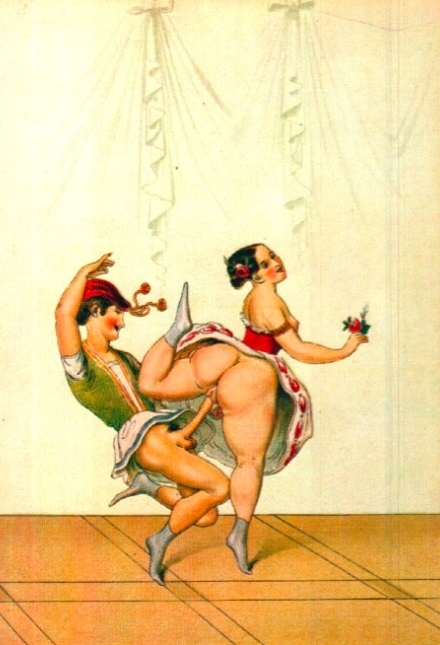
Fig. 31. Dancers (erotica universalis, p. 478)
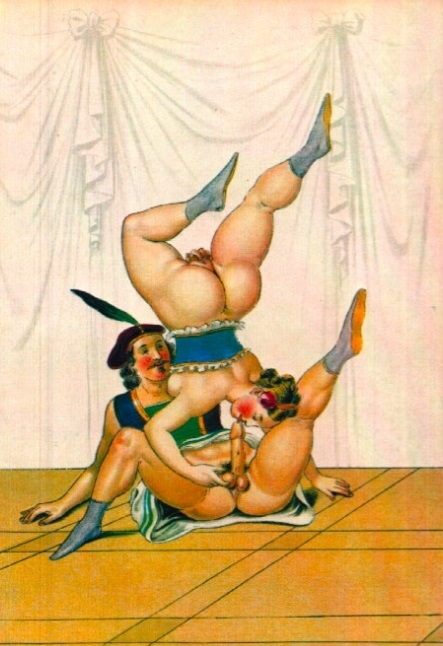
Fig. 32. Acrobatic fellatio (erotica universalis, p. 479)
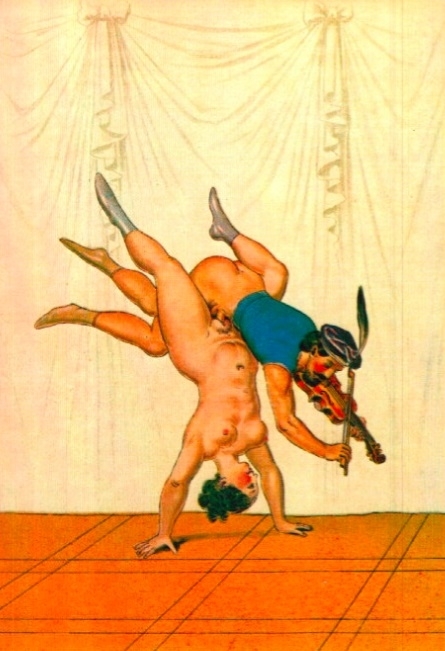
Fig. 33. Acrobatic violin play (erotica universalis, p. 480)
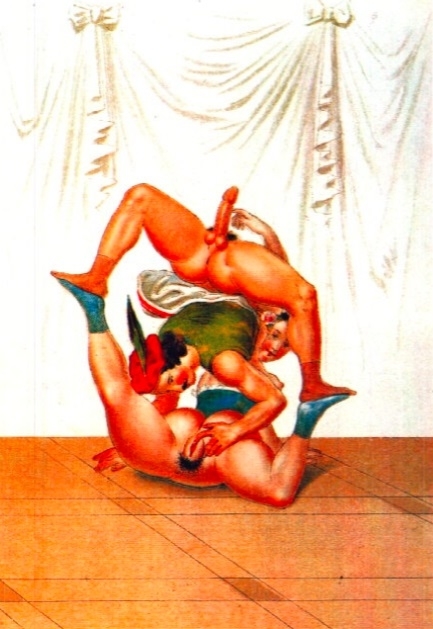
Fig. 34. Erotic scene with acrobats (erotica universalis, p. 481)
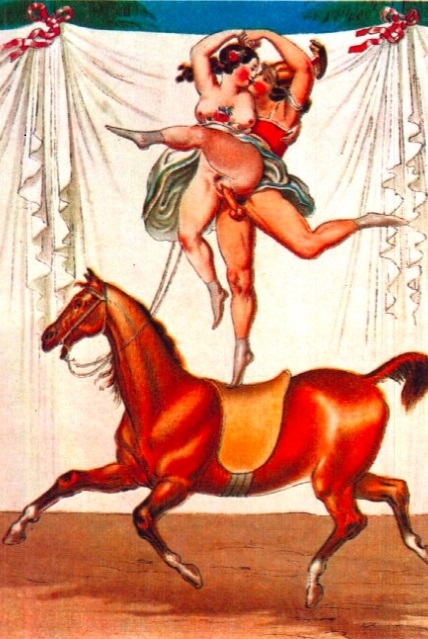
Fig. 35. Horse riders (erotica universalis, p. 482)
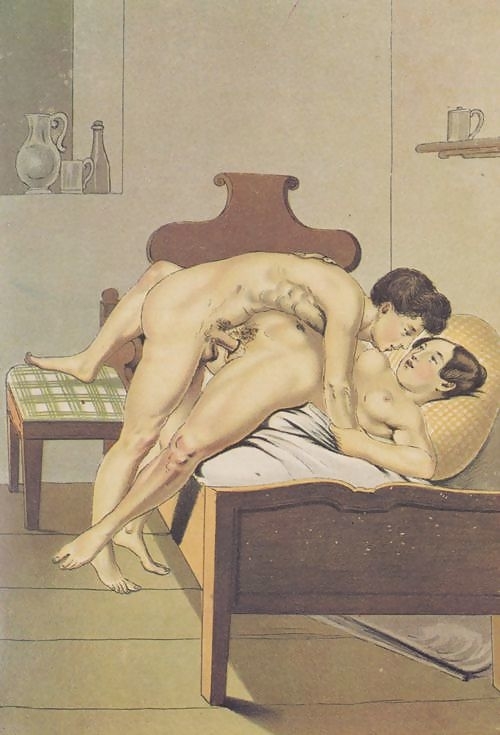
Fig.36. Young completely nude couple making love
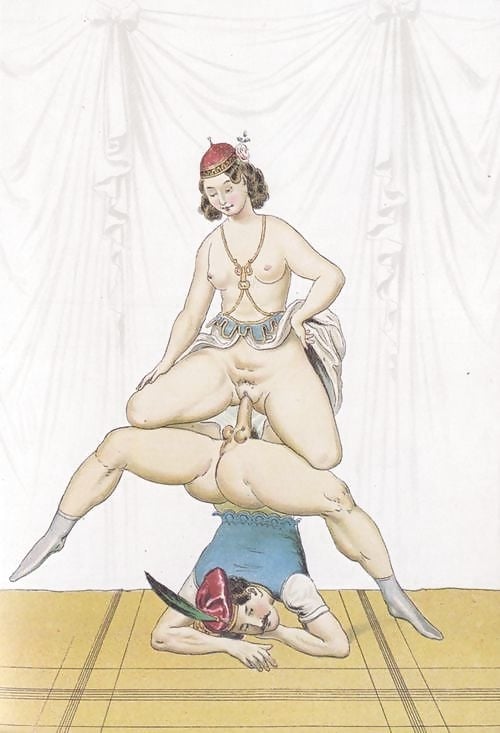
Fig.37. Acrobatic intimacy
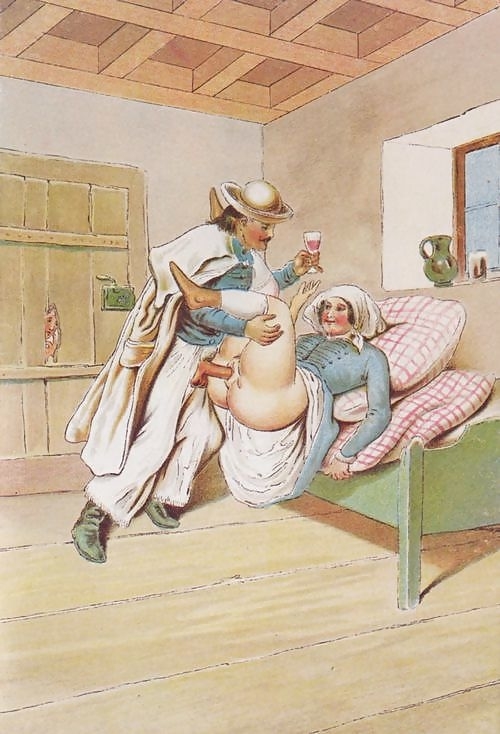
Fig.38. Drinking wine
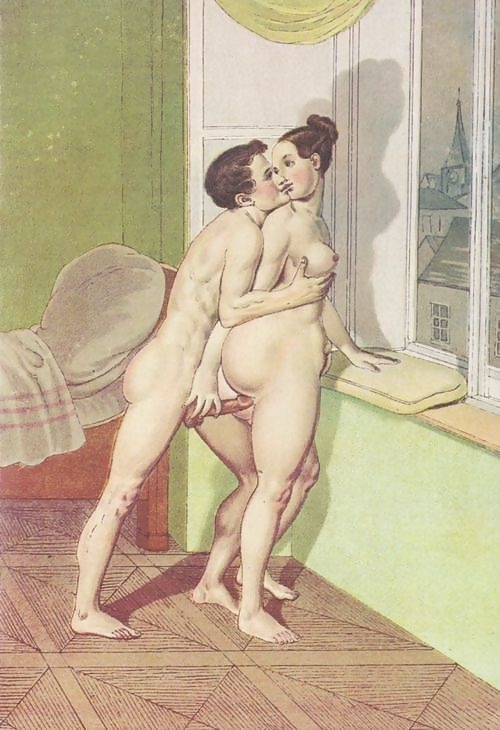
Fig.39. From the rear at the window
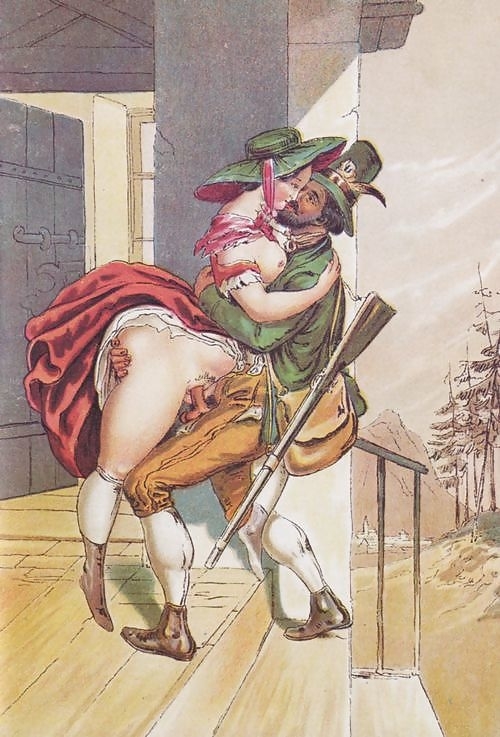
Fig.40. Hunter making love on the porch
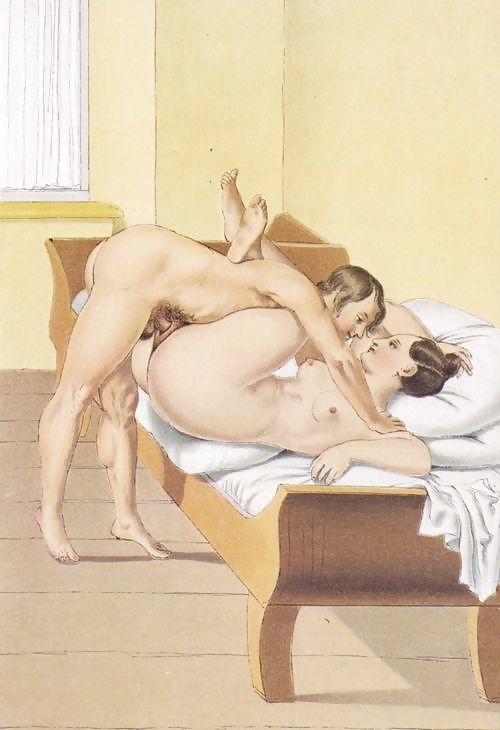
Fig.41. Young intimate couple on the bed
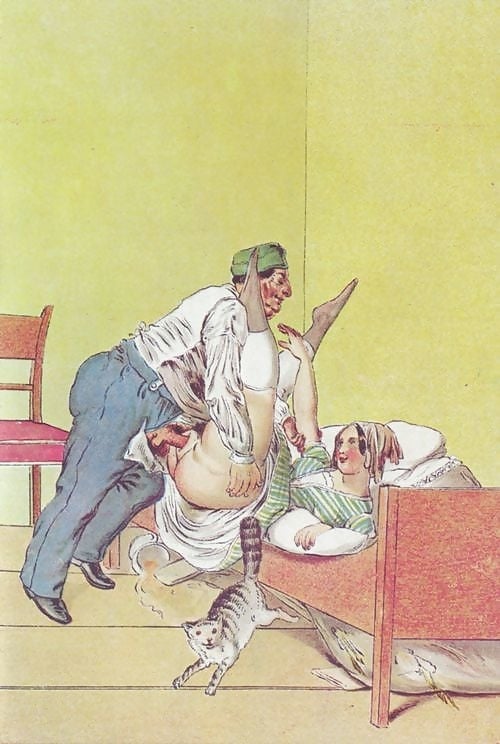
Fig.42. Older couple with cat
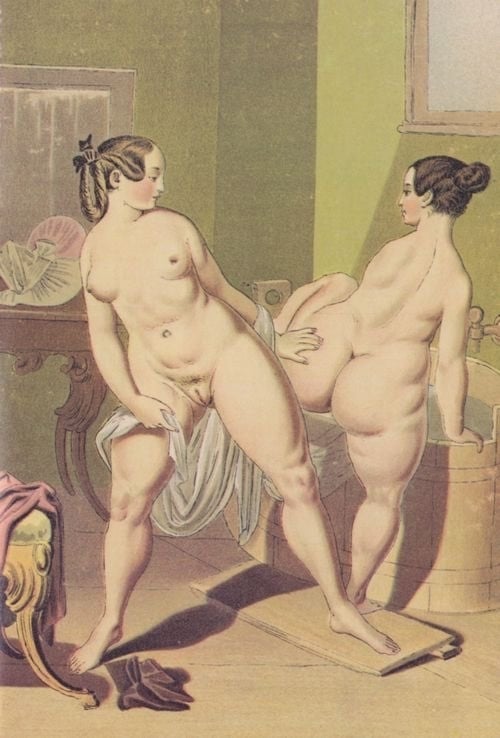
Fig.43. Lesbian encounter in the bathhouse
Sources: Wikipedia.org; Eugene C. Burt. Dictionary of Erotic Artists. 2010; Gilles Néret. Erotica Universalis. Taschen. 1994; russianvienna.com.
Click HERE and discover the sensual lust and life In the drawings of the Hungarian court painter Mihaly Zichy..!
What do you think about the sensual Biedermeier art of Fendi? Leave your reaction in the comment box below… !!
